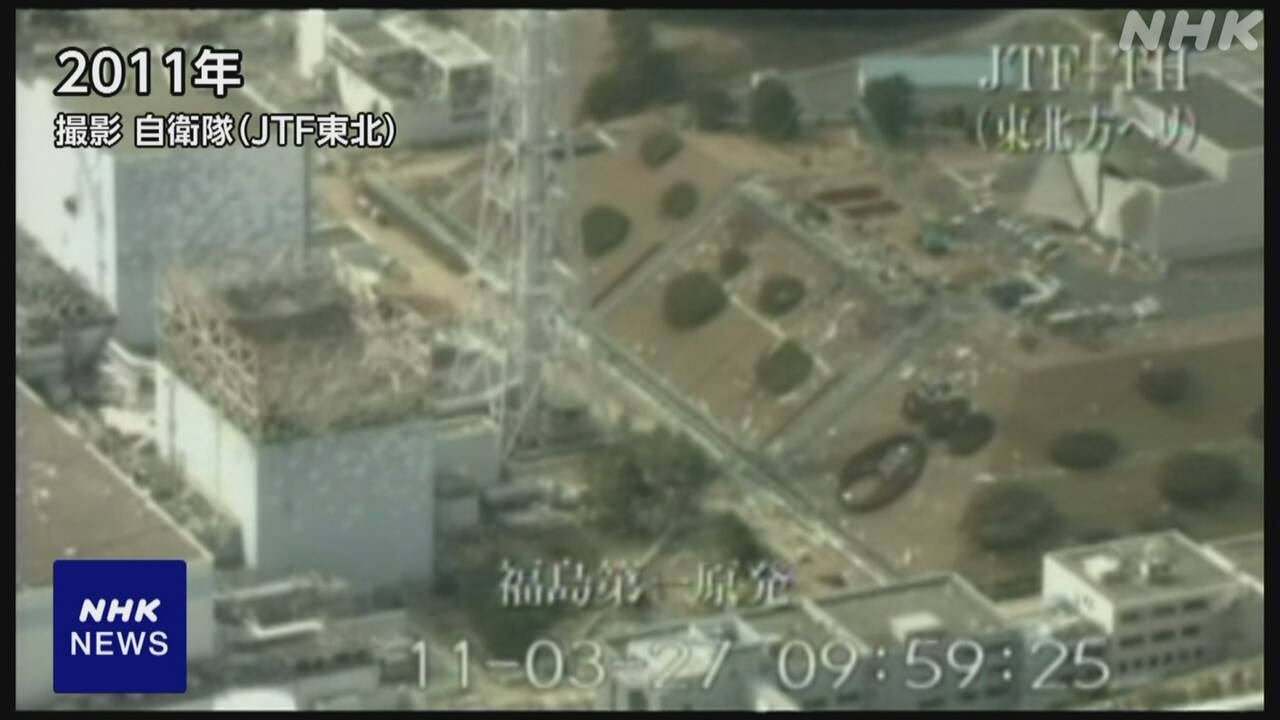Due to the accident at Tokyo Electric Power Company's Fukushima Daiichi Nuclear Power Plant 13 years ago, many residents of Fukushima Prefecture were evacuated at the time, and neighboring Ibaraki Prefecture decided to evacuate residents in areas where Fukushima Prefecture had not received an evacuation order. NHK found out in an interview that they had requested in writing to suppress the restrictions.
Ibaraki Prefecture said, ``We recognize that this was necessary to ensure response in the event of a nuclear disaster.''
Following the accident at the Fukushima Daiichi Nuclear Power Plant caused by the massive earthquake that occurred on March 11, 2011, the government issued a series of evacuation orders and shelter-in-place orders to residents in the surrounding area.
However, as the situation worsened, including a hydrogen explosion, residents in areas where the national government had not issued evacuation orders began to voluntarily evacuate outside of Fukushima Prefecture.
Under such circumstances, NHK has learned through a freedom of information request that Ibaraki Prefecture has requested Fukushima Prefecture to restrict the evacuation of residents who have not been given an evacuation order.
According to a document released by Ibaraki Prefecture, the request was sent from the Governor of Ibaraki Prefecture to the Governor of Fukushima Prefecture on March 16, 2011, five days after the accident, stating that ``Residents who have not been requested to evacuate should not We ask that you please limit evacuation by individual vehicles as much as possible."
At the time, Ibaraki Prefecture was accepting residents from Fukushima Prefecture, which had been given an evacuation order, but serious traffic jams were occurring with cars from people evacuating from other areas, making it difficult for emergency vehicles to reach. There were widespread concerns and impacts, including problems with refueling.
Regarding the request, Ibaraki Prefecture said, ``We recognize that the request was necessary to ensure that the prefecture responds in the event of a nuclear disaster by taking evacuation actions in accordance with administrative instructions.''
On the other hand, Fukushima Prefecture acknowledged that a request had been made, but said, ``We cannot confirm from records at the time whether the request was actually made.''
Evacuation plans are being drawn up across the country in preparation for a nuclear power plant accident, but the accident at the Fukushima Daiichi Nuclear Power Plant once again highlights the difficulty of evacuating across a wide area.
Expert: “It is important to constantly review the evacuation plan”
Professor Naoya Sekiya of the University of Tokyo, who is an expert on nuclear disaster prevention, said that it was natural for people who became anxious to begin evacuation to protect themselves at the time of a nuclear accident, and said, ``The basics of evacuation in a nuclear disaster are Rather than evacuating far away, it is important to fully understand that to protect yourself from radioactive materials, you can take iodine tablets to reduce internal exposure, shelter indoors, and evacuate to a wide area." I am.
He also states that in order to increase the effectiveness of evacuation plans, it is necessary for the government to provide accurate and prompt information to residents.
In addition, Professor Sekiya said, ``Nuclear power plant evacuation plans are constructed with the assumption that residents will evacuate according to instructions from the government, but it is necessary to consider what to do if things do not go as planned.'' It is important to constantly review the plan in light of the nuclear power plant accident that occurred 13 years ago."

